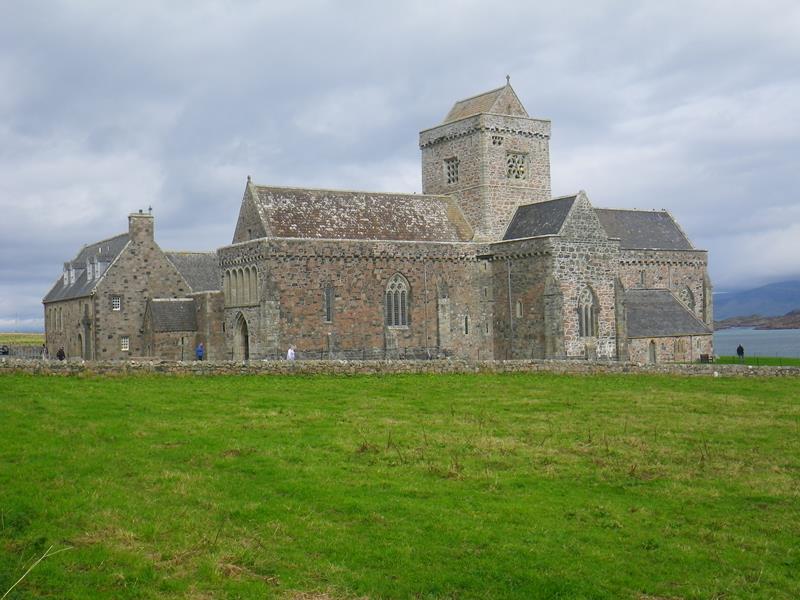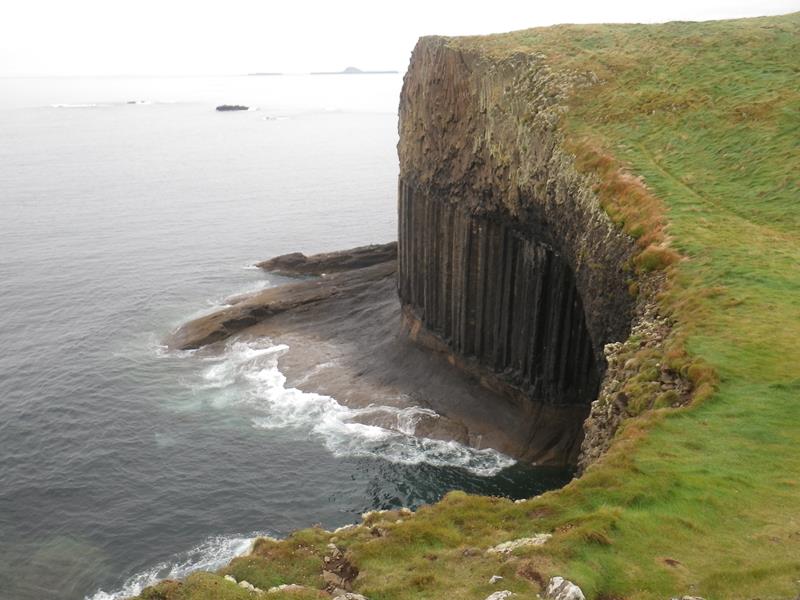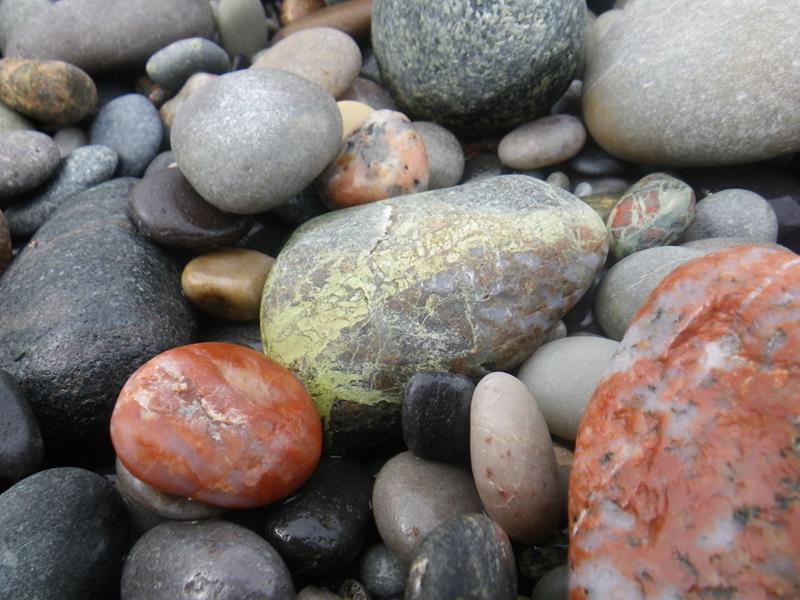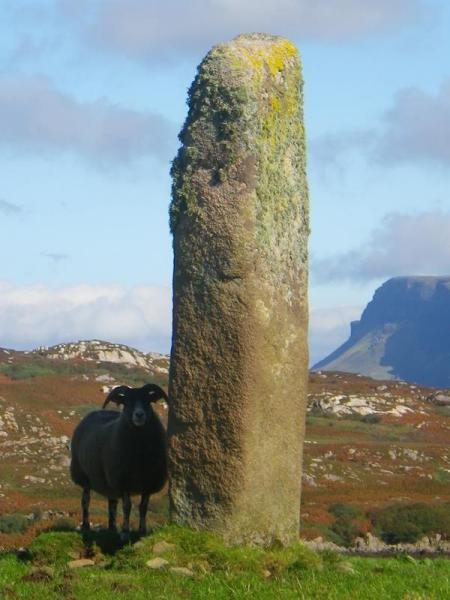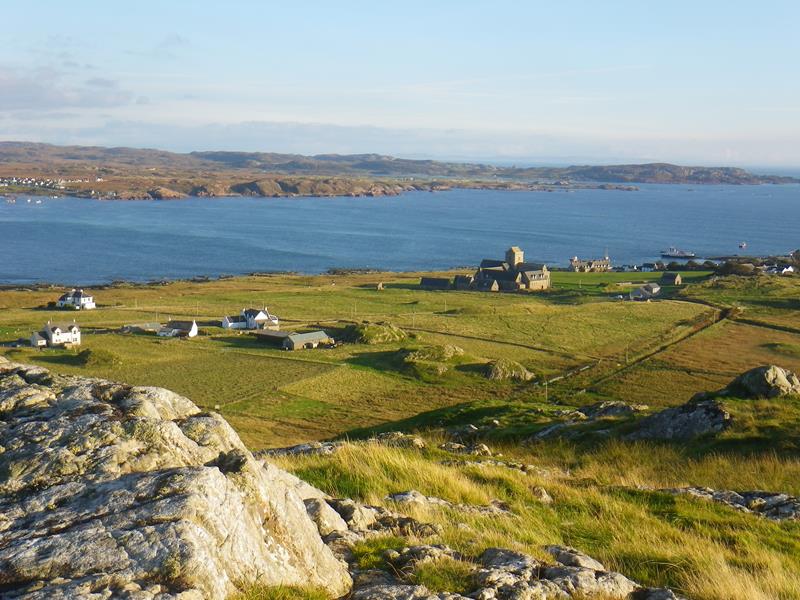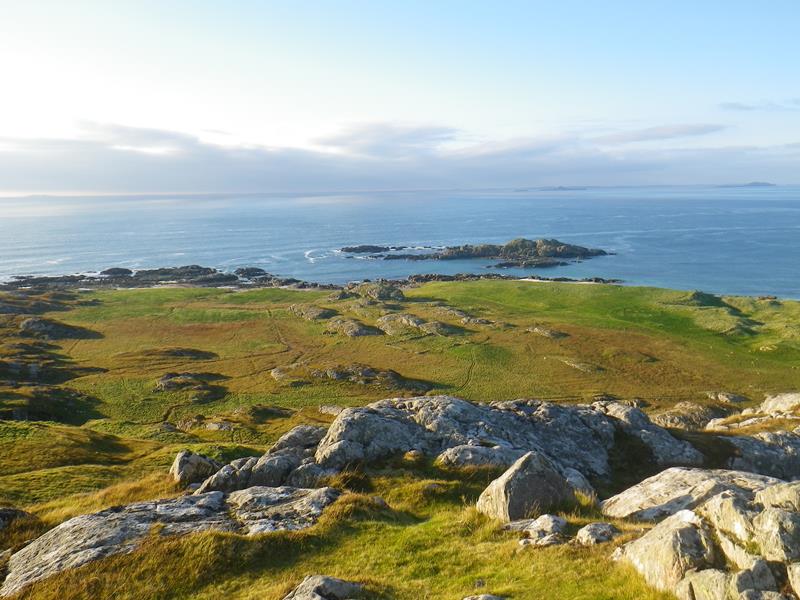Home>Let It Flow
Let It Flow Blog
First, let’s get all the caveats and disclaimers out of the way. I am not a Christian. I am not a believer in any religion of any sort. Contrary to what my family thinks, I do not even worship trees. But I am an environmentalist, which to me, means that I believe in the importance of understanding and appreciating the natural world we live in and doing my best to protect that world from unnecessary degradation caused by our species.
Next, let’s establish the background and setting. My wife and I were travelling for a month in Scotland and eventually wound up on the tiny island of Iona off the west coast of Scotland. Iona is famous as the location of a medieval abbey established by St. Columba in 563 A.D. Columba is widely credited with bringing Christianity to the Picts of the Scottish Highlands and Iona was an important center of the Christian world for a time. A church was built there and, later, a grand cathedral. Pilgrims journeyed to Iona from all corners of Christendom. Scores of Scottish kings were buried there. But time took its toll. Viking raids sacked the abbey numerous times and the cathedral was partially destroyed during the Reformation. For hundreds of years, the wider world forgot all about little Iona. But then Victorian tourists with romantic notions of a Celtic Revival re-discovered Iona and its ruined abbey. The abbey church was restored and tourists and pilgrims once again flock to Iona. Which is how I came to find myself sitting in this ancient Christian site listening to an extraordinary sermon.
The text for the sermon was the Gospel of Mark, specifically the parable about whether a rich man can get into Heaven. To paraphrase Mark, a wealthy devotee of Jesus wanted to know if he could enter the Kingdom of God. The young man told Jesus that he followed all the commandments and wanted Jesus to assure him that was enough. Jesus’ famous reply, “It is easier for a camel to pass through the eye of a needle than for a rich man to get into Heaven”. This shocked and disappointed the wealthy young man [and several of the disciples as well]. Giving away all ones worldly possessions was, apparently, too steep a price to pay to gain God’s Kingdom. So far there was nothing very shocking about this sermon and it sounded like pretty standard stuff to my untrained ears, so I let myself get distracted by the magnificent architecture. Just as I was trying to figure out what was original and what was rebuilt in the 19th century, I heard the phrase,” climate change”. So I immediately refocused on the minister or priest or whatever the person was who was speaking. She said that 21st century Western civilization, by ignoring what it is doing to the environment, is cutting itself off from the spiritual aspect of the Kingdom of God.
She compared our culture of mass consumption and over-exploitation of limited world resources to the wealthy young man in the parable. He knew that to achieve salvation he needed to devote his life and wealth to helping the needy, but found it too onerous to contemplate. Similarly, we all know in our brains and our hearts that the amazing quality of life we have in the West is both unsustainable and out of proportion to the destitution that hundreds of millions of people around the globe face. Worse, the high carbon footprint of our lifestyle is directly affecting the climate and insuring that generations of humans in the future will pay dearly for our Hummers and three car garages and conspicuous consumption. The minister put it bluntly : in a world of finite resources, we in the West are using more than our fair share. Our overconsumption is making the climate worse for everyone, but especially for the poor of the world who can least cope with heat waves, killer storms, droughts, etc. The minister said it is not easy to gain the spiritual aspect of God’s Kingdom while we are on this earth. How can there be love and brotherhood [or even understanding] among people [and between different peoples] if the very way we live in the West is gradually, but inexorably, impoverishing the rest of the world and even threatening its future.
Pretty powerful stuff, especially to me who hadn’t been to a church service since 1976 when I was trying to make time with a nice Baptist girl. The minister then finished her sermon by inviting everyone to engage in a minute of silent meditation/prayer to consider what each of us would be willing to give up to attain love and brotherhood with all the peoples of the world right now and here on earth. Fully hooked by now, I quickly reviewed in my mind various energy saving strategems I was employing at home: I drive a hybrid, most of my electrical devices are plugged into powerstrips which I turn off when not in use, I burn wood to lower my LP gas usage in winter. But I was feeling a little guilty [carbon footprint-wise], and as I glanced around the church full of pilgrims and tourists, I could see others looking a little uncomfortable as well. For you see, practically everybody there had flown by commercial airlines from somewhere around the world in giant metal machines greedily sucking jet fuel and spewing exhaust.
Aye, there’s the rub. Even when we Westerners are out innocently having fun cavorting in the Scottish Highlands, walking rocky beaches, and eating blood pudding, we still have a heavy carbon footprint just getting there. Although I know there are ways online to calculate the carbon cost and then make a donation to assuage one’s conscience, that voluntary individual approach does not resonate with me [maybe because it seems symbolic only and not a practical solution]. On the other hand, I am more than willing to pay a carbon tax, fairly and equally applied to everyone, as part of the true cost of my Scottish vacation. Which leads to what may initially appear to be a slight digression: the cost of petrol in the United Kingdom. After converting liters to gallons and pounds to dollars, I was paying eight bucks a gallon for gas. More than twice what I had been paying at home in Michigan. Interestingly, instead of feeling outrage the way most Americans do whenever the price creeps up toward four dollars per gallon, I found myself hoping that the high price was due to the U.K. government imposing huge taxes on petrol and thereby funding the vast arrays of wind turbines visible around Scotland. Yes, I thought , that is a sacrifice I would be willing to make: pay a lot more for gas… IF the extra money would go to development of sustainable energy sources [as opposed to bonuses for CEO’s and corporate contributions to politicians].
Interestingly enough, a few weeks later I was sitting in a packed Miller Auditorium at W.M.U. listening to a talk by Bill McKibben who co-founded the climate change awareness group 350.org. He suggested that the simplest, fairest and most effective change to our national energy policy would be massive taxation of oil companies. This would lead to large increases in the price of gas as the oil companies recouped their tax payments. A large increase in the price of gas would cause people to drive less, thereby using less fuel. More importantly, people would tend to buy more fuel efficient vehicles. [To paraphrase McKibben : does our quality of life in the U.S.A. really require a quasi-military assault vehicle to run to the grocery store?] The final part of this new energy policy would involve investment of the increased tax revenue in alternative energy R&D and tax rebates to the segment of the population most hard-hit by the higher gas prices.
Stop the digression, I want to get off [and back to the Iona Abbey church]. After the meditation/prayer, I let my mind wander a wee bit as choir music echoed off the centuries old walls. Somewhat surprisingly, I had learned some things during this brief Christian encounter. Some Christians care deeply about the environment and even see it as part of their religious duty to be a good steward of the world. Some see curbing their energy usage as a moral imperative, now that it is painfully obvious that our current high standard of living has a cost to people around the world increasingly at the mercy of catastrophic weather events.
I had also learned some things about myself. While not a Christian, I do believe in the Golden Rule which seems to be at the heart of most ethical systems. Therefore, if I wouldn’t like Chinese or Indian people using up all the earth’s resources and simultaneously fueling global warming, then I should not do that to them. I also realized that I am willing to cut back energy usage, to curb my consumption, and to pay a premium for the luxuries I don’t want to live without [like foreign travel]. In a word, I am willing to make some sacrifices to make the world a better place, now and in the future. What I need are some visionary leaders in Washington willing to trust me not to penalize them at election time if they have the guts to enact the energy policies we all know we desperately need. So, in closing, I would ask each of you to ponder what you are willing to sacrifice the next time you are praying or meditating or simply walking through the woods [where all my best thinking is done]… and consider that camel trying to pass through the eye of a needle.


